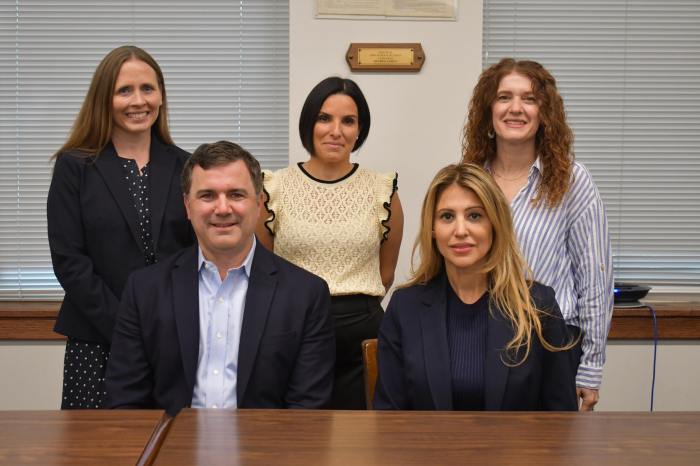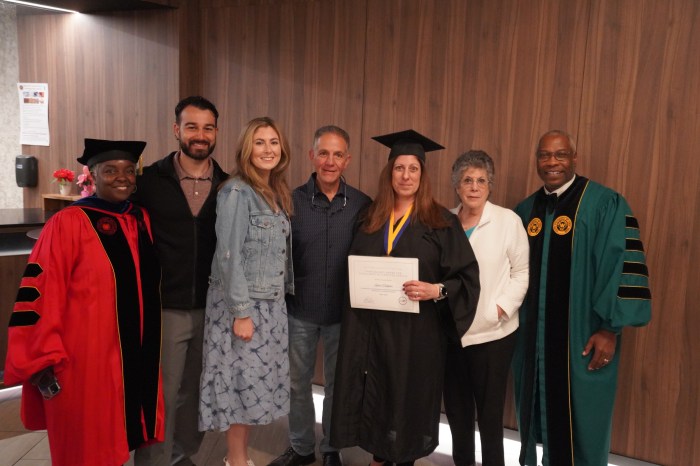 In 1965, I was accepted as an undergraduate student at CCNY’s Bernard M. Baruch School of Business (now Baruch College). The campus consisted of a single 16-story building on 23rd Street and Lexington Avenue, I have fond memories of my undergraduate business education.
In 1965, I was accepted as an undergraduate student at CCNY’s Bernard M. Baruch School of Business (now Baruch College). The campus consisted of a single 16-story building on 23rd Street and Lexington Avenue, I have fond memories of my undergraduate business education.
Ultimately, my career path led me to pursue an MBA (also at Baruch) and to teach advertising and marketing at Nassau Community College in Garden City, New York. September, 2018 will mark my 40th year teaching at this wonderful institution of higher learning. My students continue to bring a smile to my face when I enter the classroom.
Going back in time (more than four decades ago), students were equally as competitive as today to secure an entry-level position with any Fortune 500 company. Every marketing course was a stepping stone in preparation for that dream job. Then, as now, the emphasis and responsibility for achieving career success rested solely on the personal initiative of each student.
Now that I am a college educator, I have a more objective insight into the business preparation process. Despite our highly technological advances, not much has changed for college students. They still harbor the same fears and frustrations as my generation did.
And it’s up to business to help!
I’m not talking about tutoring students in reading and math skills. I’m not talking about donating equipment or “naming rights” on new campus buildings. What I am talking about is business taking on a meaningful role as a mentor to college students. The more globalized and employee-centric a company positions itself (e.g. Google), the greater the mystique it offers to college students seeking employment. So, to encourage students and provide them with much-needed support, I propose a five point program for your business to consider:
 Organize a Comprehensive Speakers Bureau.
Organize a Comprehensive Speakers Bureau.
Rather than assign someone from the public relations department to handle speaking engagements, make it a company-wide program. Encourage both staff and line employees to develop a 30- to 60-minute talk on their areas of responsibility and expertise. Use social media such as LinkedIn to reach this market.
 Develop a Mentor/“Guest-Professor” For a Day Opportunity.
Develop a Mentor/“Guest-Professor” For a Day Opportunity.
The goodwill and public relations value of such a gesture cannot be overemphasized. College professors welcome the opportunity to have businesses involved with their students. It enables students to observe role models first-hand and can be particularly beneficial to culturally disadvantaged and disabled students.
 Establish a Visitation Program.
Establish a Visitation Program.
What better opportunity can a student have than to visit a prospective employer for a day? Enlist staff members willing to be “shadowed” for a few hours. This field experience can be a motivator for both parties.
 Offer Scholarships to Promising Students.
Offer Scholarships to Promising Students.
With the increased costs of education at both public and private colleges, businesses would be doing a valuable service for students if they worked with business departments at area colleges to develop scholarship programs. In my classes I refer to this as financial corporate social responsibility (and then some!).
Remember, in the word “business,” the letter “u” comes before the letter “i.” When businesses give to others, they can receive much more in return.
 Institute a Year-round Intern Program.
Institute a Year-round Intern Program.
Cooperative Domestic and International Job Placement Programs, such as Nassau Community College offers in our many programs, has become vital in the marketplace. It’s obvious that colleges and universities throughout the United States have come to realize the importance of experience in the real workplace.
Professor Jack K. Mandel has been teaching at Nassau Community College since September 1978. He is the recipient of the prestigious “Outstanding Teacher Award” conferred by the New York State Association of Two-Year Colleges.

































